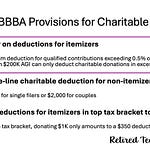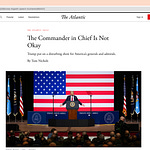This week was another one where I suspected that my phone was listening to my conversations. My feeds were just full of discussion about strikes and boycotts. Today is October 26th, and this is Episode 9.
Chicago has become somewhat of a sister city, like Portland, it has become the target of Trump’s regime. Its mayor, Brandon Johnson, called for a general strike. I wanted to share the coverage of his speech in Chicago, an explanation by political commentator David Pakman, as well as commentary by history professor Heather Cox Richardson. Then, I wanted to share some of my own questions. This week, I’d like to invite discussion with all of you, too, as this is definitely an issue that I’m still forming my opinions on, and I’d like to hear your thoughts, too.
Call for general strike from Chicago mayor
First a disclaimer. I don’t totally agree with what’s being called for here. I’m pasting in coverage on Instagram from Breakthrough News, a news source known to be extremely left-leaning. Still, they were the ones who published the most relevant footage from the #NoKings rally in Chicago, where Brandon Johnson literally called for a general strike.
“If my ancestors, as slaves, can lead the bravest general strike in the history of this country, taking it to the ultra-rich and big corporations, we can do the same today. I’m calling on black people, white people, brown people, Asian people, immigrants, gay people who are around this country to stand up. to the upper rich and big corporations. We are going to make them pay their fair share in the country. To run our schools, to run jobs, to run healthcare, to run transportation, democracy who live on because of this generation. Are you ready to take it to the courts and to the streets?”
The Instagram clip also featured clips from people in the crowd.
“It’s going to be hard, right? We’re seeing just the depth of the attacks that are happening, trying to roll back all those games that were won through past struggle that you were talking about. And they’re not going to win. They’re not going to do it. This crowd out here is showing why they’re not going to do it.”
“It’s our money. It’s supposed to go to us. And so when we go on a general strike, we’re basically saying we want our money to go back to us. We want our power to go back to us, not to these fascists.”
This was the first public statement by the Chicago mayor calling for a general strike. These remarks were not previewed in official city press releases or pre-rally interviews. What we don’t know is whether the call to speak about this was a strategic surprise or a last-minute decision.
Still, what we do know is that the footage shows that some protesters showed up with signs prepared with this messaging, and we don’t know whether groups like The General Strike, with 395,00 signatories, or The People’s Union USA (known for the “economic blackout” events) coordinated with the mayor.
It’s also important when looking at this Instagram post to note that the editing was very selective. Despite it appearing from the footage that the crowd was all for a general strike, the relevant fact is that Brandon Johnson’s approval rating is rock bottom at 26%, with a 58% disapproval rating, according to a University of Chicago Manu institute poll. So, even in very Democratic Chicago, Johnson’s approval rating is lower than Trump’s is nationwide, so watch the editing here with some skepticism.
David Pakman analysis
But still, we see that the actual words suggesting a general strike are raising real questions among political commentators. Progressive political commentator David Pakman explains the rationale well.
A general strike is when workers across a lot of industries, not just one, all stop working at the same time to protest or to demand change. It’s not one company. It’s not like just tech workers. It’s not only teachers or only nurses. The idea is everybody strikes together. In a sense, the U.S. has never really had a true general strike. So imagine if transportation, workers, school teachers, power company workers, if everybody joined together, the systems that keep the country going would very quickly grind to a halt. It would be impossible to ignore.
And the idea is that by being impossible to ignore, it would force the people in power to come to the table to negotiate. Now, what would it be about? Well, it would really be about collective power. The idea here is Trump, through his authoritarianism, has taken control of so many areas of our lives. No one seems to be able to stop him. And so the point would be people showing up and showing that they can shut the country down when the government oversteps.
And the goal would be proving you can’t run the country without us. You can’t just sit in D.C. doing all of your authoritarian nonsense and have things continue to function and have the systems from which Trump and his cronies make money continue to spit out money for them.
So, for those who viewed the large participation by 7 million people in the #NoKings rally as a good show, with little impact, a general strike might sound compelling. However, a general strike is far from a no-brainer. Pakman goes on.
Now, as you can probably imagine, it’s very difficult to organize something like this. Many workers are not legally protected if they strike for political reasons. That’s what I mean is, as opposed to striking for a specific workplace issue, if you strike for political reasons unrelated to your specific job, you can be fired or replaced. Union membership is at historic lows and many industries are deliberately structured to prevent collective action with temporary and gig or independent contractor workers. The whole point being to make it difficult for them to organize. And so under Trump, striking workers could face retaliation. They could face police crackdowns. They could even potentially face prosecution under the laws that are framed as anti-riot or critical infrastructure protection. So there is risk to a general strike.
They’re also difficult to coordinate. I mean, getting millions of people across industries and states to act together requires a huge amount of organization and trust and communication. And it’s very difficult, especially when you’ve got social media disinformation campaigns and highly polarized politics. Workers could lose jobs, income or health care, get arrested, get blacklisted. There could be violence. There could be counter protesters in an authoritarian climate. Leaders of such a movement as a general strike could be targeted personally. They could be sued, investigated, harassed.
So all of that is true. But we do find ourselves asking the question, is this the time? If not now, then when? What would it take for people to realize this must stop? And the question is whether the American people are ready, desiring and willing to do something like this right now. My honest assessment, my calculation is that the answer is “no. “
I would emphasize Pakman’s point about the lack of clear legal protections for participants. The reason that air traffic controllers continue to work right now is that they are considered essential workers that aren’t allowed to strike. Back in 1981, Reagan fired 11,000 workers after the last air traffic controller strike, and those workers got a lifetime ban at the time from future civil service. Twelve years later, in 1993, Bill Clinton reversed the lifetime ban but by then, the move was largely symbolic.
What Pakman doesn’t fully explain is what groups like The General Strike are calling for, which I don’t agree with. For example, they are advocating for a Constitutional Convention to readdress many rules of the Constitution at once, and I disagree with this. I believe a Constitutional Convention would simply result in mayhem with partisan groups like those behind Project 2025 would make it a free-for-all.
And even beyond the specifics of the proposal, I believe a general strike - or a nationwide withdrawal of labor and economic participation - could severely impact essential services and vulnerable populations. I believe this tactic risks unintended harm.
Heather Cox Richardson on targeted action
So, for those of you who’ve seen my recommendations on Substack, I’ve always appreciated the opinions of Heather Cox Richardson, a history professor at BC, who has a Substack with literally millions of followers. She recently spoke with Scott Galloway, whom I’m also a big fan of, and she made a historical reference back to the Pullman Strike in 1894, causing a national railroad boycott.
But general strikes in the United States do not historically tend to work well for the simple reason that we are so interconnected that when you start to issue a general strike, that means that people don’t get their medicine or people don’t get food or whatever. And it’s really difficult, especially in such a large country where people have so many different interests. to say to somebody whose kid needs an operation or to somebody who needs food, well, this is for the greater good.
And so when the country has tried national strikes, weirdly, it has turned against, it had people turn against them that you would think would have been on their side. For example, In the late 1890s, there was an attempt at a general strike. It wasn’t really called a general strike, but a lot of stuff got shut down. The railroads essentially got shut down. And one of the people who came out against that was Jane Addams, who was really strongly in favor of workers’ rights. But she’s like, I’m watching kids not have food around me. I can’t be part of this.
So I tend not to support the idea of a general strike. People look at it and they say, “Oh, you’re gonna show how important we are to the economy,” but you’re also gonna show people who should be on your side that you can’t be trusted because you don’t care about their need for basic necessities.
So I tend to be against that and very much for targeted boycotts, targeted strikes, because that enables people to have a workaround for those sorts of emergency situations.
Now, like I say, I am not a specialist in where strikes pressure people, but I know in our past, general strikes have tended to split the movement rather than to create unity behind it.
So, the net here is that even from a historical perspective, general strikes don’t work in the US, but targeted boycotts do.
This leaves us with the question. Which targeted strikes or boycotts should we participate in? I think you may remember from this podcast that I didn’t participate in the Disney Plus boycott in response to the Jimmy Kimmel suspension. Perhaps I’m on the wrong side of history on that one.
What other actions are there?
Probably the biggest successful boycott we participated in has been against Tesla to protest the political activities of Elon Musk. As much as I believed they had the best tech and value for an emission-free vehicle, we didn’t buy a Tesla. Despite that I had an old gas car, we held out as the tech got better and ultimately bought a Toyota RAV-4 plug-in hybrid this year, opting to be a one car family instead of just adding a second, all-electric vehicle. With this one vehicle, we can buzz around town all-electric on a day-to-day basis but still have the range for the occasional road trip to neighboring states. Followers of this Substack know that we just took the car to California. In any case, we know that many others did the same thing, as Tesla sales are way down worldwide, and Toyota sales are up 15.9% here in the US year over year.
Outside the US, I’m familiar now with the boycott of Spotify because of its founder’s investment in AI drone technology. I did the one-step migration of my Spotify playlists to Apple Music, which was pretty painless. As an Apple One family subscriber, I’m going to cancel our Spotify Premium once I give my adult kids the opportunity to migrate their playlists, too. In this case of Spotify, there’s been enough user inertia and change has been slow. It doesn’t seem here that the boycott has had much effect on the company at all.
Similarly, I participated in the one-day Economic Blackout on February 28th earlier this year organized by the People’s Union USA. The impact was minimal. So, even though I appreciate the talking points, I know, like with the Spotify migration I’m doing, that future participation is more symbolic and mental than impactful.
So, as a citizen, I don’t know where to take it from here. With the recent demolition of the East Wing of the White House, there are a whole set of contributors to this project that some groups have talked about boycotting. However, I’m not sure how in the modern era, I can boycott Apple, Amazon, Microsoft, and Google? And I’ve been a T-Mobile subscriber for years.
I continue to voice my opinions with legislators, through town hall attendance, and through this Substack. Are there economic actions I can also take here? I don’t think a general strike is the answer, but I’m also not sure if there are any other concrete proposals for targeted actions. Any thoughts?
Please leave me comments on the Substack, or DM me!
That’s it for this week. See you next week!










